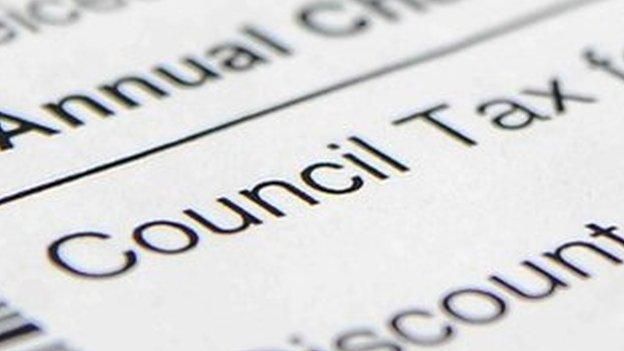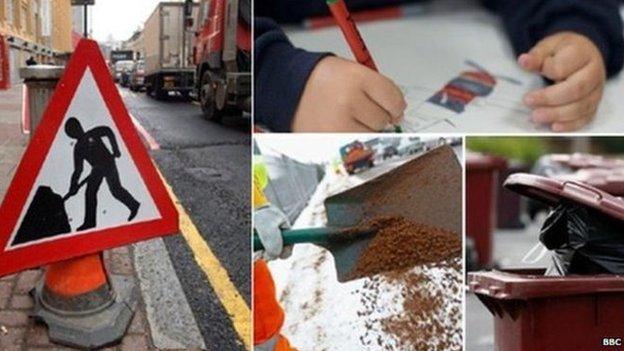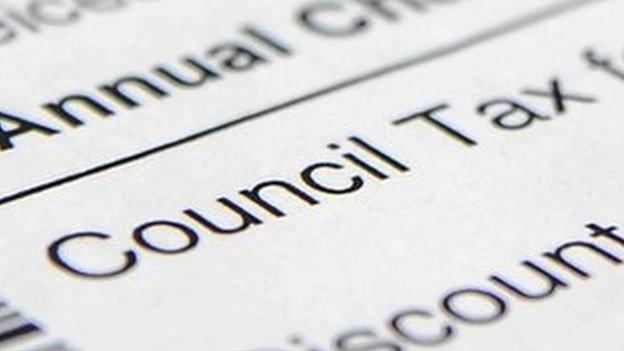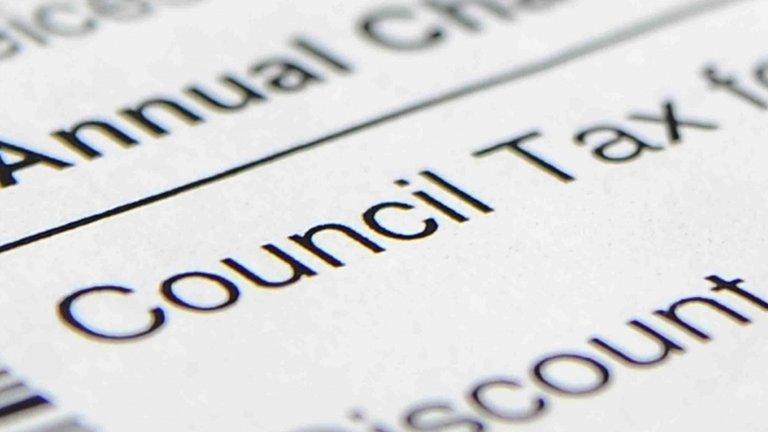Survey suggests backing for council tax reform
- Published

A clear majority of the people who took part in a major online survey about the council tax want to see it replaced or reformed.
The survey was run by the commission set up to find what it describes as "fairer alternatives" to the tax.
Two thirds of those who opted to take part said it should be replaced with a system more closely related to income or the priorities of local communities.
The commission's report is due to be published in the coming weeks.
It was jointly established by the Scottish government and the body that represents the collective interests of most councils, Cosla, with a remit to examine so-called "fairer alternatives" to the council tax.
The tax accounts for approximately 15p of every pound a typical Scottish council spends. It has not been increased since 2007.
Online survey
The commission has been looking at various options and gauging public opinion. It's report will not recommend one particular option for replacing the tax but is expected to present a detailed examination of the pros and cons of a number of possible options.
The hope is the report will feed into the policy debate in individual parties ahead of May's Scottish election. All the major parties, other than the Conservatives, were represented on the commission.
Nearly 4,500 people proactively opted to take part in the commission's online survey between May and September.
Although the group cannot be described as a representative sample of the population, the commission says the questionnaire helped it hugely to understand the scale of the issues which a new local tax system must address.
While a majority felt that the current system of council tax was simple and easy to pay and understand, they also said that the system was unfair and failed to protect those who can't afford to pay.
The survey also found that people aged 16-34, low income households and single people were more likely to have negative views on council than those on higher incomes.
Opinion was mixed on what an alternative system should look like, with a hybrid tax - based on a mix of property and land value, wealth and income - and a review of the existing council tax banding system among the options highlighted .
Marco Biagi, Minister for Local Government and Community Empowerment and co-chair of the commission, said: "The views of the public have been at the heart of our work as a Commission and the findings of the online survey are a welcome addition to the wealth of evidence from home and abroad that we have considered over the course of our deliberations.
"There is clear consensus from those that we have heard from - whether through this survey, our call for evidence and the public events that have taken place - that the current system of council tax, while highly visible, is in urgent need of reform.
"Ensuring that as many people as possible have had the opportunity to engage in our work will add weight and credibility to our findings when we report."
'Informed debate'
Cllr David O'Neill, president of Cosla and commission co-chair, added: "Each and every one of us is affected by the way we pay for vital local services so the views of those who have responded to our online survey will have a great deal of resonance as we formalise our findings.
"We want to make sure that as many people as possible have had their chance to make their views known, with our forthcoming findings paving the way for an informed debate on the decisions that we will need to take as a country in order to fund local government spending."
The commission ran an on-line survey from May to September 2015.
A total of 4,492 responses were received which provided an indication of opinions from those who proactively chose to opt in - it was not intended or designed to be representative of the whole of Scotland.
However, these processes help set out the scale of the issues which a new local tax system must address.
- Published21 August 2015

- Published7 August 2015

- Published30 June 2015
